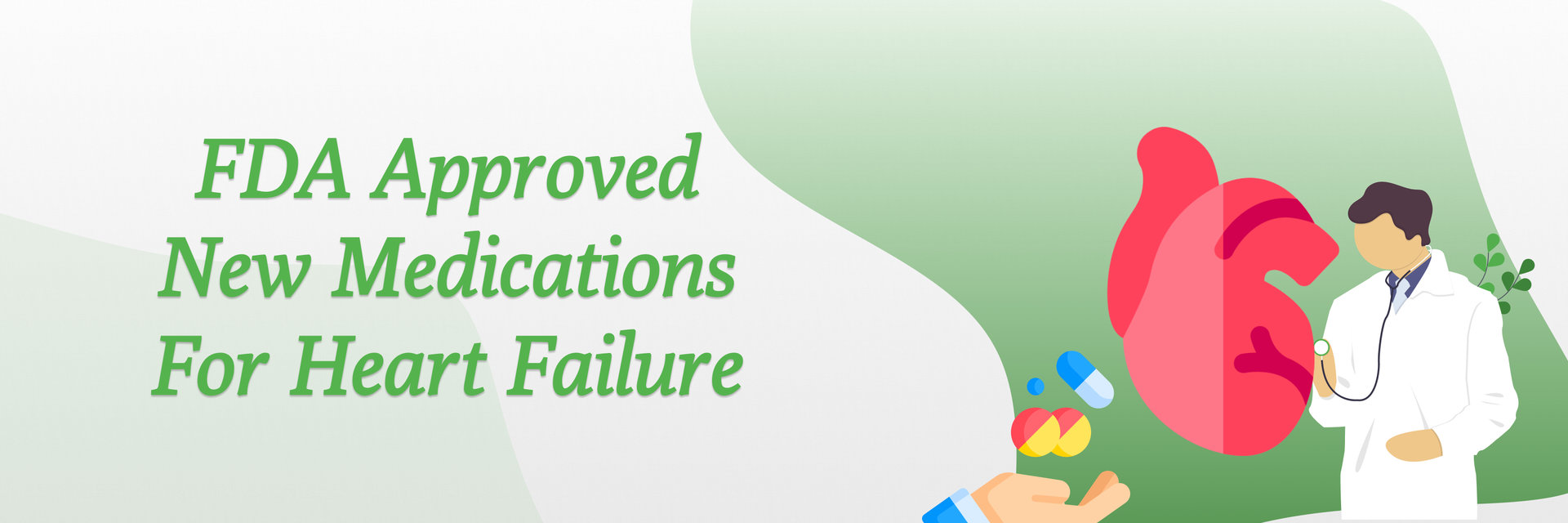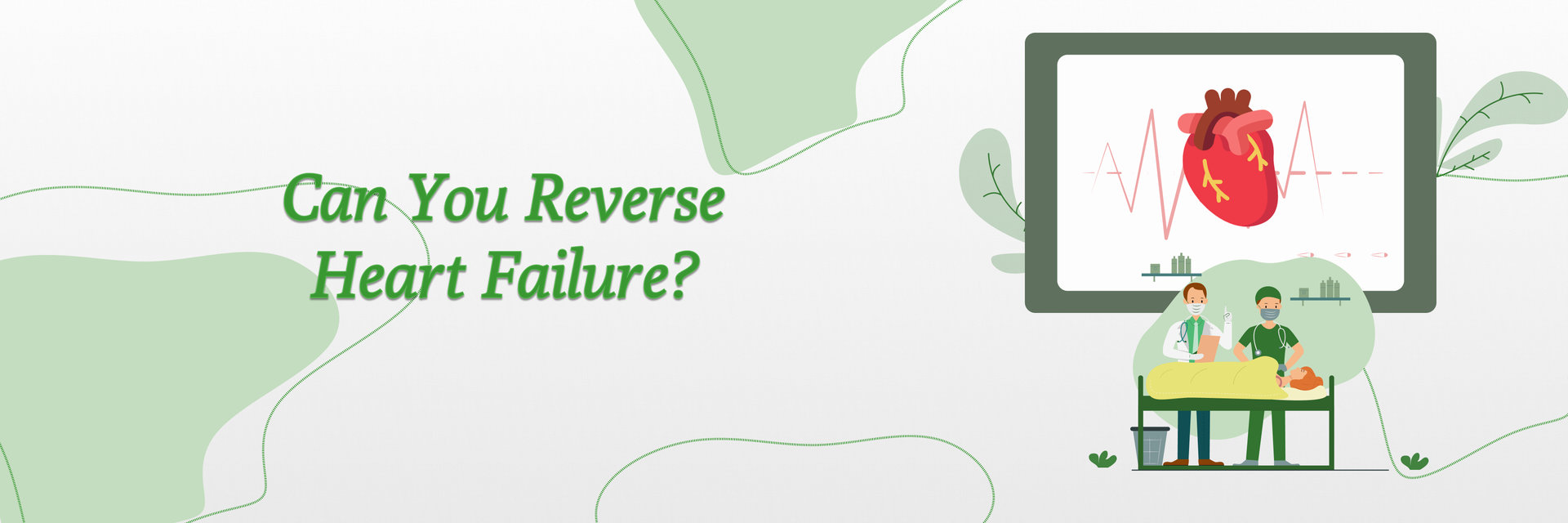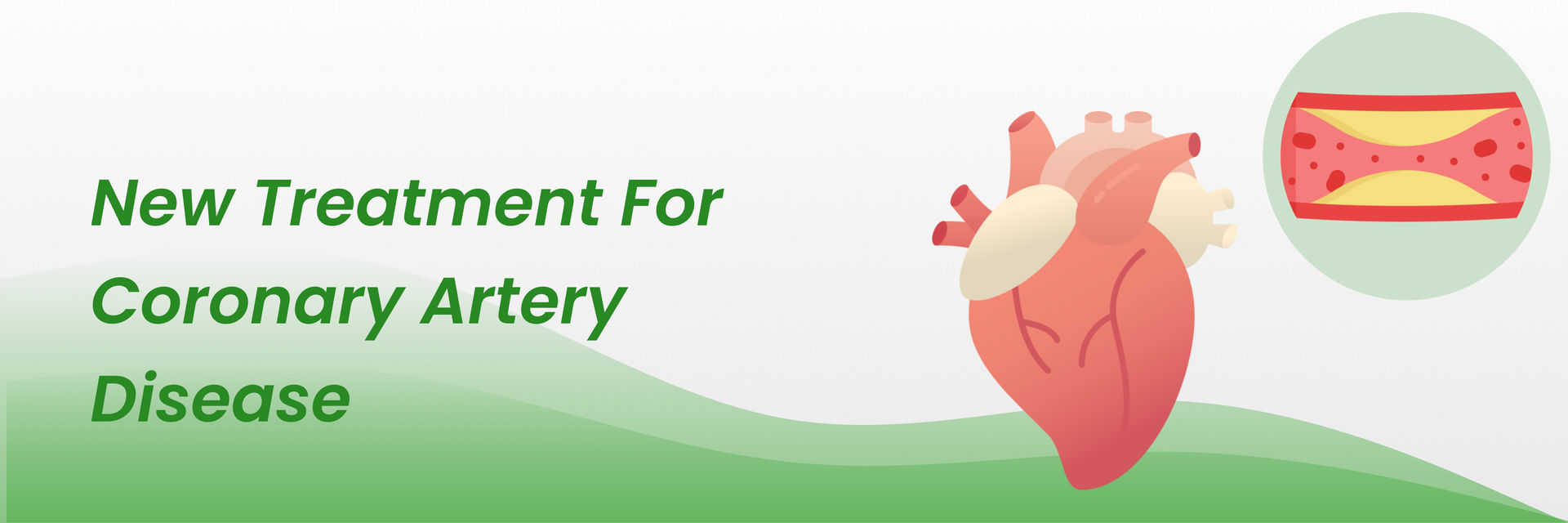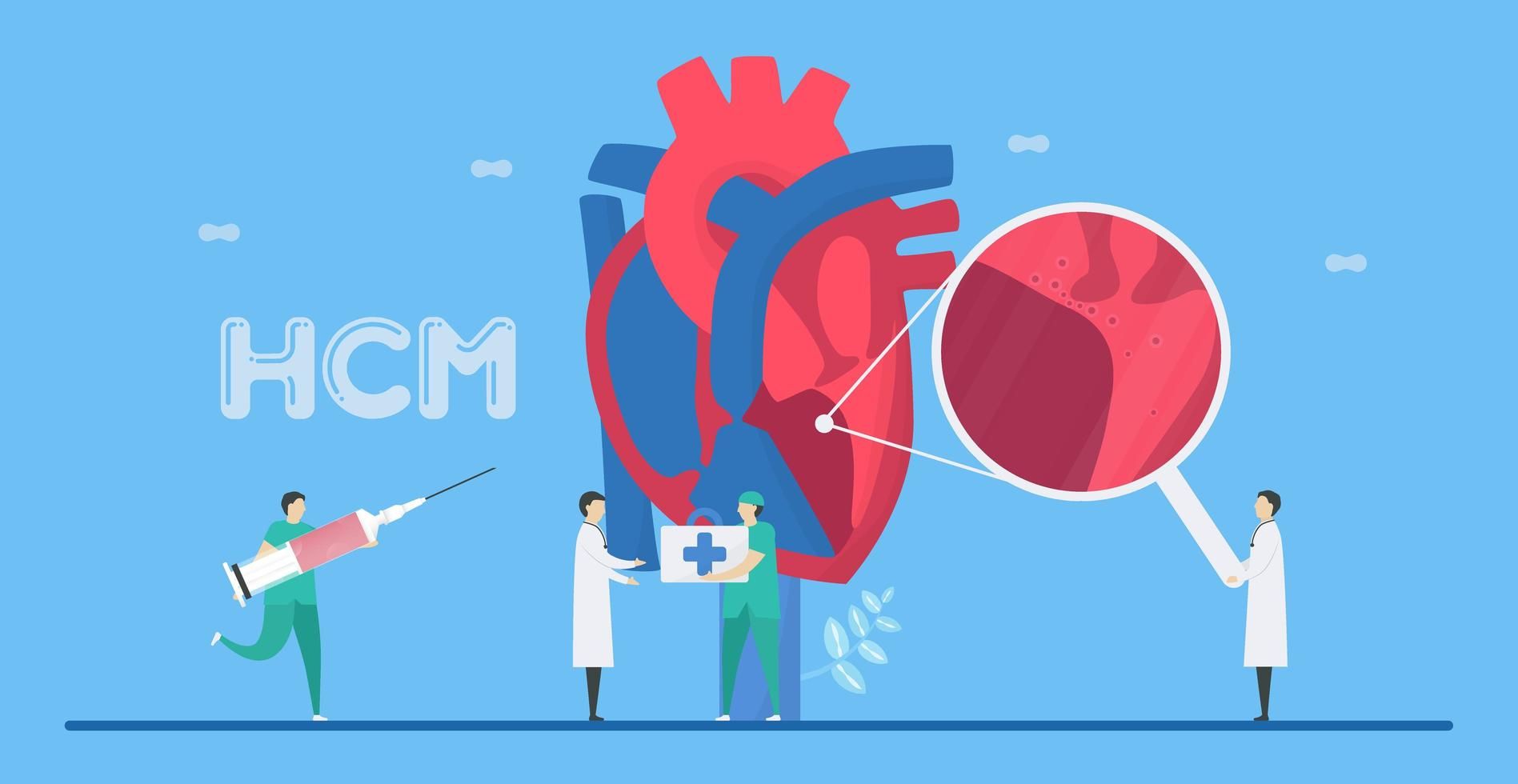Before we start to discuss if there is any link between sleep apnea and heart disease, let's put some light on what sleep apnea is. It is considered one of the few serious sleep disorders an individual can have. If you snore very loudly or feel exhausted even after a full night’s sleep, it is possible that you have developed sleep apnea.
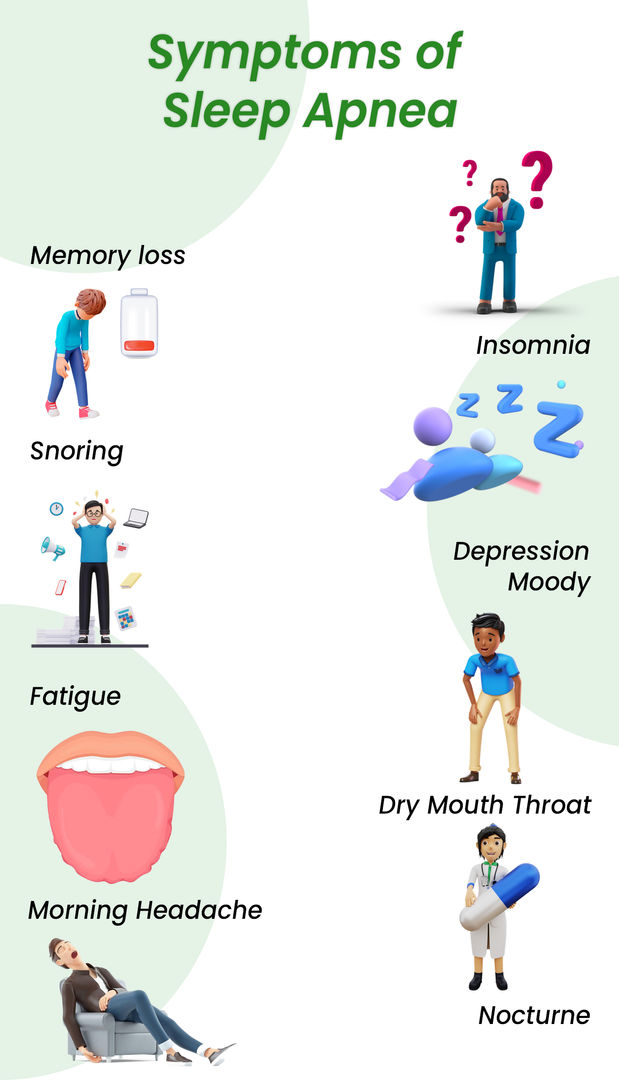
If you are seeing the above symptoms, it is possible that you have sleep apnea.
There are mainly 3 kinds of sleep apnea observed among people:
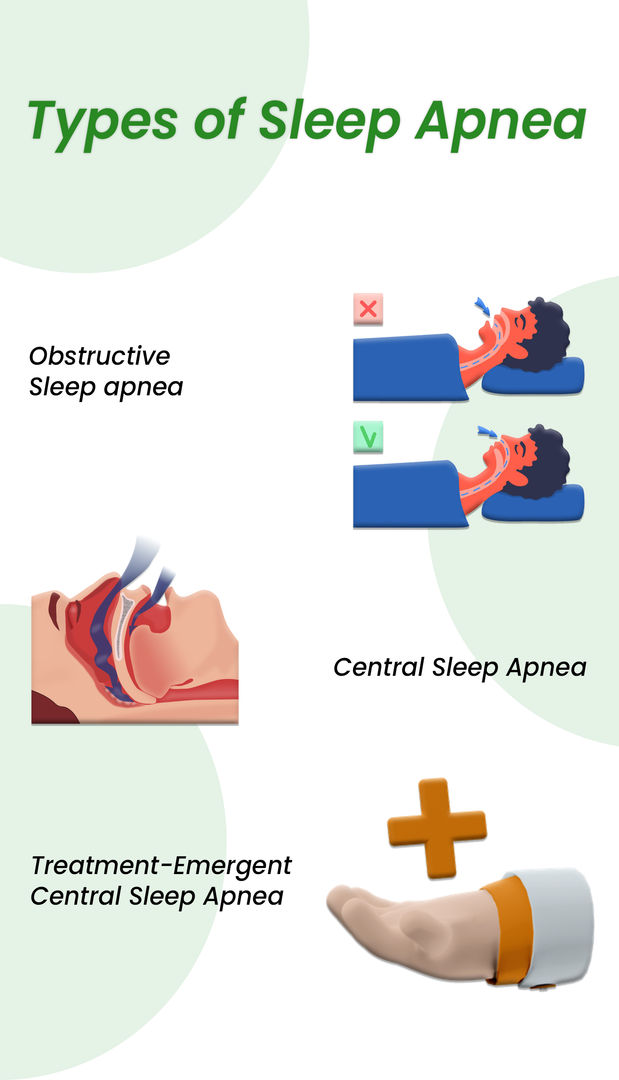
Is there a link between sleep apnea and heart disease?
Sleep apnea related to heart health? Yes, there is a direct relationship between sleep apnea and heart disease.
The effects of sleep apnea extend beyond daytime fatigue and lack of concentration. Breathing pauses often deprive the lungs of oxygen and cause heavy strain on the body. Hence, sleep apnea heart problems are very common. Sleep apnea causes heart problems like coronary heart disease, heart failure, stroke and irregular heartbeat.
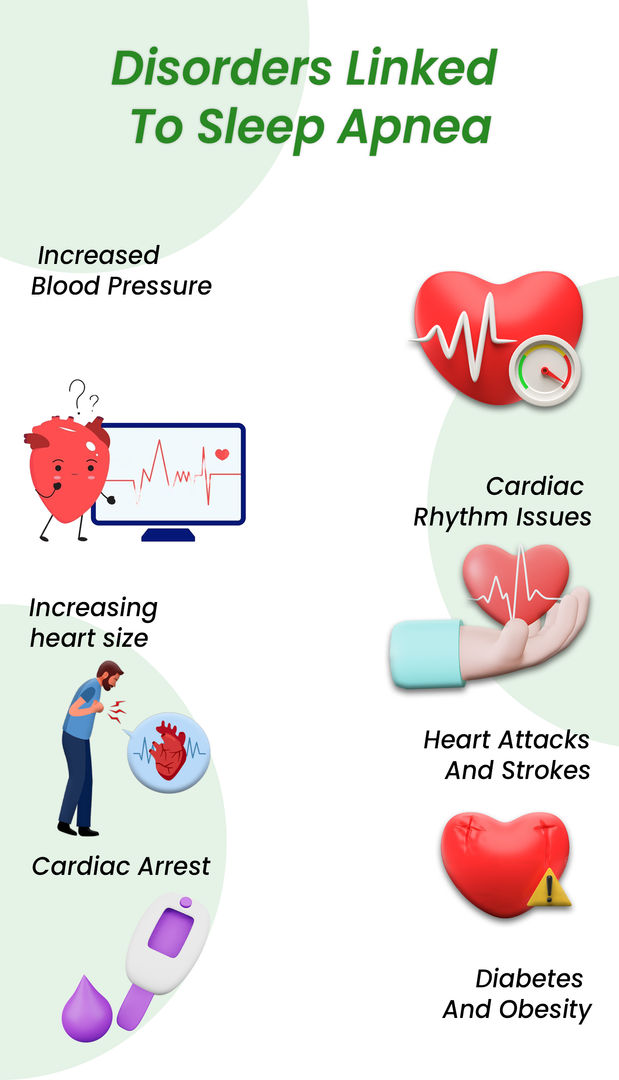
Why does sleep apnea cause heart failure?
Heart problems and sleep apnea go hand in hand. Coronary Artery disease is very common among those with obstructive sleep apnea. Coronary artery disease, also known as arterial stiffening, develops as the tiny blood channels that carry oxygen and blood to your heart contract.
Heart failures and heart attacks can occur as a result of narrowed coronary arteries. Untreated OSA will increase your chances of getting heart failure in the future by double.
How common is heart disease due to sleep apnea?
Sleep apnea results in sleep deficiency. People with sleep apnea do not get proper sleep and lack of proper sleep on a regular basis puts a negative impact on their heart health.
Allowing the body to relax and recover from daily stress is one of the many crucial functions of sleep. Breathing becomes steady and regular during sleep and the blood pressure and heart rate decrease.
A study published in the Journal of the American College of Cardiology found that people with moderate to severe sleep apnea were two to three times more likely to develop heart failure than those without the condition.
Another study published in the Journal of Clinical Sleep Medicine found that people with sleep apnea had a 30% increased risk of developing coronary artery disease, even after controlling for other risk factors such as obesity and high blood pressure.
The heart and circulatory systems do not get enough time to heal because people with OSA do not get enough sleep. Hence, a higher risk of hypertension and cardiac disease, heart attack and stroke has been associated with long term sleep deprivation.
Would you like to know how sleep apnea can affect your heart and life? Read carefully to take necessary actions!
What are the effects of sleep apnea on heart health?
Effect | Description |
| Low levels of oxygen | Low levels of oxygen cause the sympathetic nervous system to constrict blood vessels, raise heart rate and blood pressure, which might result in hypertension or aggravate the risk of existing hypertension. |
| Issues in breathing | The amount of oxygen in the blood reduces each time sleep apnea prevents proper breathing. |
| Heart failure or atrial fibrillation or issues with blood supply to the heart | People with OSA struggle to breathe due to a constricted or blocked upper airway. The pressure inside the chest cavity might shift significantly as a result of the failed, forceful inhalations. These repeated variations in the pressure might harm the heart over time and can potentially cause heart failure, atrial fibrillation or issues with blood supply to the heart. |
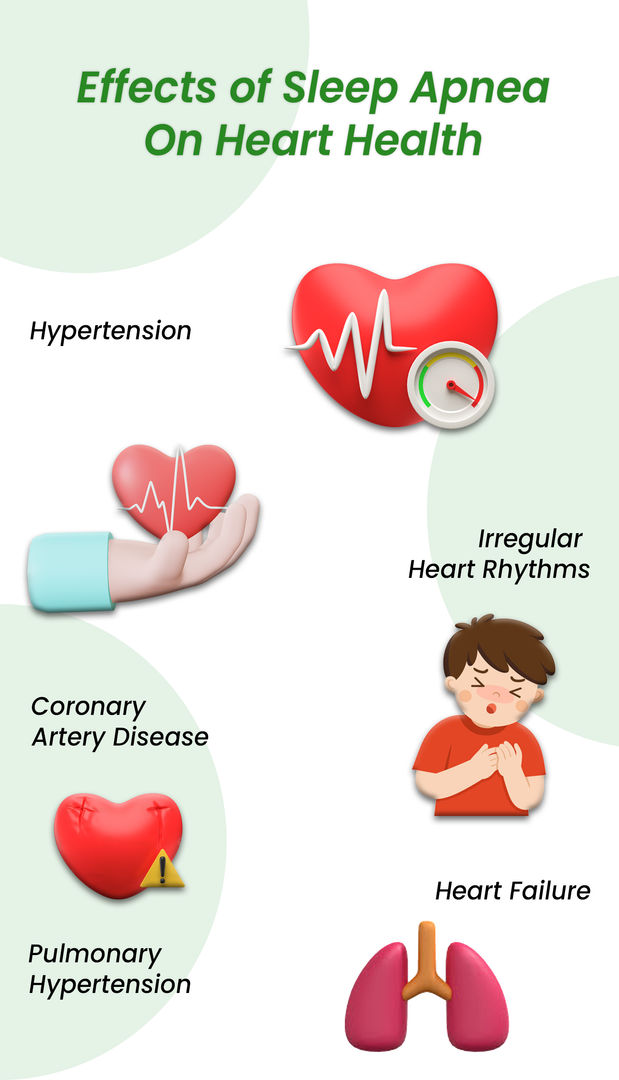
The changing oxygen levels increase stress on the body, known as oxidative stress. Oxidative stress facilitates systemic inflammation, neurochemical and physiological reactions that raise the risk of heart disease.
How does untreated sleep apnea affect the heart?
Untreated sleep apnea can lead to a number of cardiovascular diseases. For instance, having OSA increases your risk of developing hypertension and makes it more challenging to manage existing high blood pressure. About 30% of hypertension patients have obstructive sleep apnea. Sleep apnea can increase your chances of developing high blood pressure by 50%.
Open heart surgery may be used to treat certain cardiovascular diseases that have been exacerbated by untreated sleep apnea. When sleep apnea contributes to or worsens cardiovascular conditions such as coronary artery disease (CAD), congestive heart failure (CHF), or pulmonary hypertension, open heart surgery can be considered as part of the treatment plan. But it is not a direct treatment for sleep apnea itself.
It could also be challenging to manage atrial fibrillation if you leave your sleep apnea untreated. Leaving sleep apnea untreated may increase the recurrence of atrial fibrillation by 25% even after treating it. Coronary artery disease is also very common in people who have OSA.
You are twice as likely to get a heart attack in the future if you have severe OSA and don’t receive treatment. It can also lead to heart failure in people.
Dr. Camilo Ruiz, a dual board-certified internist and sleep specialist quotes -
“Sleep apnea can cause low oxygen during sleep that can adversely affect the heart provoking heart attacks and arrhythmias. It can place increased stress on the heart through low oxygen levels and high blood pressure leading it to weaken the heart over time."
Are you confused if sleep apnea affects your quality of life as well? Read below to know the answer!
Can you live normally with sleep apnea?
According to Cleveland Clinic, improper sleep patterns caused by sleep apnea might eventually start to seriously harm the body.
The immediate side effects of sleep apnea include poor energy, weariness, and foggy thinking. The consequences of sleep apnea, however, become more severe over the long run.
As per Cleveland clinic the following disorders are linked to sleep apnea:
- Increased blood pressure
- Cardiac rhythm issues
- Increasing heart size
- Heart attacks and strokes
- Cardiac arrest
- Diabetes and obesity
Each of these ailments poses a risk to your health and shortens your life. The American Academy of Sleep Medicine estimates that even mild sleep apnea raises your chances of dying by 17%.
Untreated severe sleep apnea has more drastic effects on life expectancy rate, it approximately doubles your mortality risk.
Sleep issues that are not addressed can harm your physical and mental health both. You can gain the information you need by sleep testing to get the therapy you need. ClinicSpots is there to help you connect to doctors and advisors.
If you’re interested to know how this damage can be reversed, keep reading!!
Is heart damage from sleep apnea reversible?
Yes, proper treatment of sleep apnea can possibly reverse the danger of heart problems.
According to British researchers, using a breathing machine called CPAP to treat sleep apnea might enhance heart function and perhaps avoid heart failure.
In a study of CPAP trials, an echocardiography was performed after treating apnea patients with CPAP for six months. The scan showed that a significant portion of cardiac damage had been repaired. It is anticipated that these advancements will result in a considerable decrease in sleep apnea cardiovascular risk and sleep apnea heart problems like stroke, and coronary artery disease.
References:


